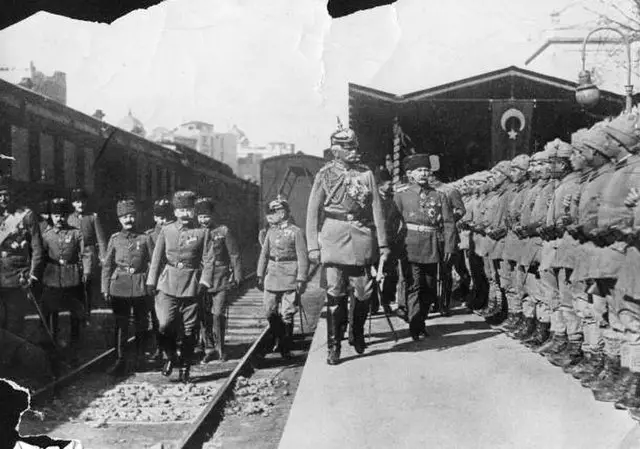It feels like a story ripped from the pages of a historical drama: a powerful empire that once stretched across continents collapses, and its last heir ends up in a modest apartment, feeding pigeons, unknown to almost everyone passing by.
That’s not fiction. That’s what really happened.
While the world remembers the grandeur of the Ottomans, the palaces, the conquests, the call to prayer echoing through Istanbul’s skyline, almost no one remembers the final chapter. The part after the fall. The part where royalty fades quietly into the background. This is the story of the last Ottoman heir, a tale of exile, loneliness, and the strange weight of being a nobody when your ancestors ruled everything.
A Glorious Fall: When Empires Don’t Explode, They Fade
The Ottoman Empire lasted over 600 years. That’s longer than the British, Roman, or even Mongol empires. At its peak, it controlled vast swaths of Europe, Asia, and Africa. Sultans ruled from the gilded halls of Topkapi Palace, wielding unimaginable power. But by the early 20th century, the cracks were too deep to hide.
After backing the wrong side in World War I, the empire was chopped up, reorganized, and eventually dismantled entirely. In 1924, the newly formed Republic of Turkey officially abolished the caliphate and sent the entire Ottoman royal family into exile.
No farewell. No ceremony. Just a one-way ticket out.
Meet Ertuğrul Osman: The Prince Who Took the Subway
Fast forward to the late 20th century. While most of the world had forgotten the Ottoman dynasty, one man still carried the name. His name was Ertuğrul Osman.
Born in 1912 in Istanbul, Ertuğrul was the grandson of Sultan Abdul Hamid II. He was 12 years old when his family was banished. He would never again see his homeland for most of his life. Instead, he ended up in… New York City.
That’s right. The last Ottoman prince lived in a rent-controlled apartment on Lexington Avenue in Manhattan.
He wore simple clothes, rode the subway, and could often be seen walking to the corner bakery. Most people assumed he was just another elderly immigrant. Very few realized he could have once laid claim to one of the most powerful thrones in history.
The Quiet Life of an Exiled King
Ertuğrul Osman never married for most of his life. He kept to himself, largely avoiding the spotlight. But what made him fascinating wasn’t just that he was royalty in hiding, it was how completely he rejected the drama of reclaiming any kind of power.
While some exiled royals scheme or campaign for restoration, Osman simply… didn’t. When asked if he wanted the Ottoman throne restored, he said something along the lines of: “What would I do with it? Rule over pigeons?”
That kind of humility is almost absurdly rare among people with royal blood. But maybe that’s the point. Maybe exile strips away the illusion of grandeur and leaves only the human being behind.
Homecoming After 85 Years
It wasn’t until 1992 that Turkey allowed Ottoman descendants to return. But Ertuğrul didn’t rush to reclaim any palaces. He waited until 2004 to visit, and only after much persuasion.
When he finally returned, it wasn’t as a sultan, but as a quiet, slightly bemused old man being led through a country that had long since moved on. He visited Topkapi Palace as a guest, not as its heir.
Turks greeted him kindly, even nostalgically. But the connection had frayed. Too many years had passed.
The Final Curtain
Ertuğrul Osman died in 2009 at the age of 97. He was given a funeral at the historic Sultanahmet Mosque in Istanbul. It was dignified, but understated. Fitting, really.
His passing marked not just the end of a lineage, but the end of a very specific kind of story, a story about what happens after the credits roll. About what happens when the empire is gone, and all that’s left is a name.
Why This Story Sticks
It’s strange, isn’t it? How someone born into a destiny of unimaginable power ends up as a modest figure in a city of millions. But there’s something deeply human about it.
We’re so used to thinking of history in terms of explosions, revolutions, assassinations, dramatic betrayals. But so often, it just… fades. Ertuğrul Osman didn’t try to resurrect the past. He simply lived in the present.
Maybe that’s the real power. Knowing when to let go.
Sources:
1. BBC: The Ottoman dynasty in exile
2. NY Times obituary: Ertuğrul Osman

